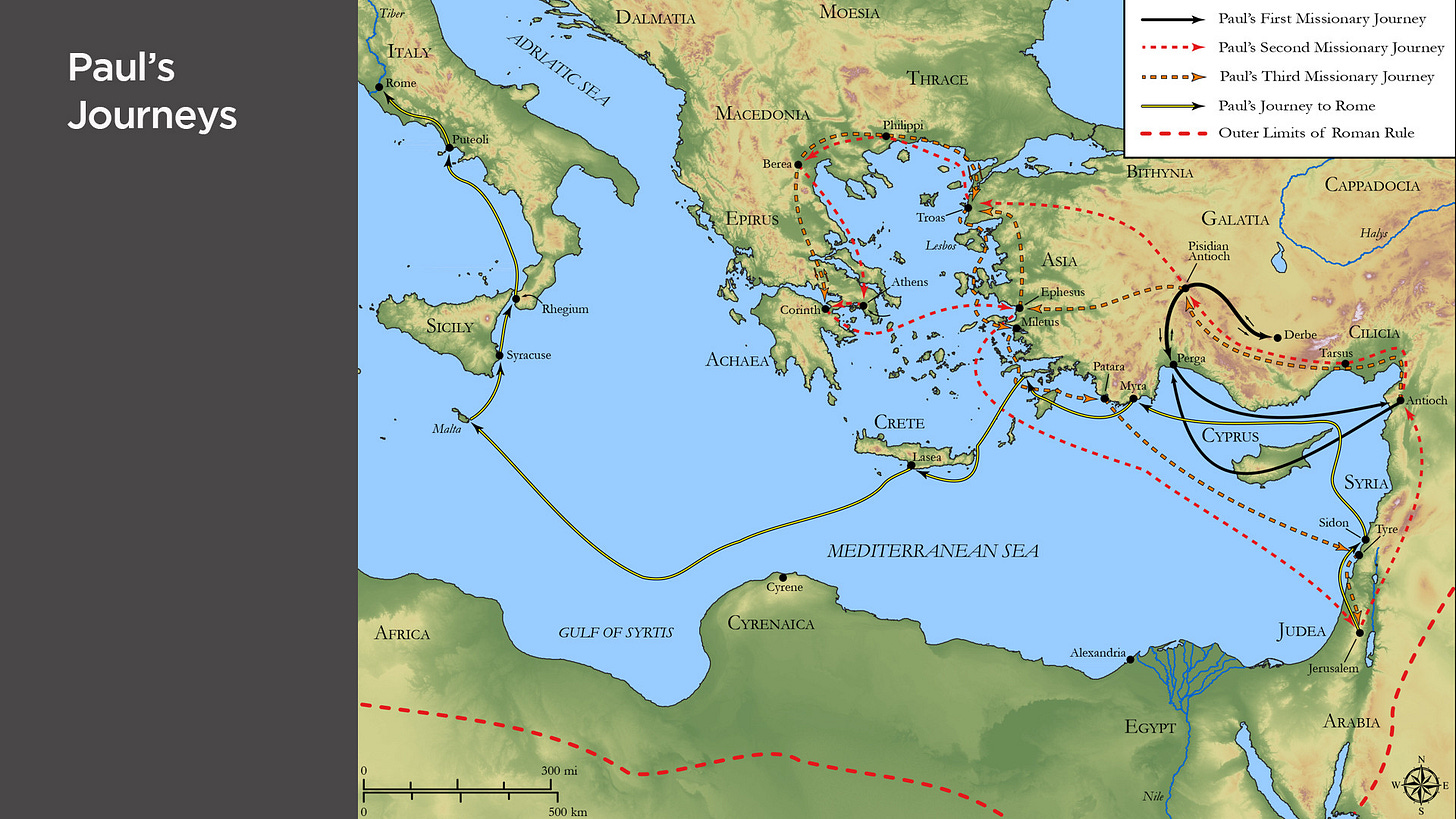
The Antioch Break-Up (That Was Really a Launch)
Five leaders, one Spirit, and a yes that opened the world.
“Set apart for me Barnabas and Saul for the work to which I have called them.”
—Acts 13:2
Chicago, 1993
In Joshua, before Israel entered the land, the Jordan parted.
In Chicago, after a three-peat, Jordan departed—I know, I know.
At the absolute peak—three rings, parades, Gatorade commercials—he steps away. Baseball. A new lane. Awkward. Everyone thinks the dynasty is done.
Hold that thought.
Antioch — early AD 40s
A church has found its groove. Generosity is normal. Teaching is rich. Worship is alive. The leadership? A Mediterranean dream team.
The Room
Five men are fasting and praying in Antioch, the multicultural launchpad of the early church. Simeon (nicknamed Niger), Lucius of Cyrene, Manaen (who grew up in Herod Antipas’s court), Barnabas the encourager, and Saul the forgiven Pharisee.
It’s a global room before “global church” was a phrase. No microphones, no stage—just the flicker of an oil lamp on stone and the presence of God.
The Voice
We aren’t told if it’s a prophetic word, an audible voice, or a shared, settled discernment. We are told what the Spirit says:
“Set apart for me Barnabas and Saul… for the work to which I have called them.”
No debate. No pros-and-cons spreadsheet. A sending issued directly from the center of their strength.
This isn’t a leave; it’s a launch.
If you run Antioch like a startup, this is a terrible play. You don’t send your lead engineer and your VP of marketing to an unproven market with zero funding. You protect your assets.
But this isn’t a startup. It’s a kingdom.
The Send
Hands lift. Someone cries quietly. Someone else gives that crooked smile of recognition—of course this is happening. They pray. They fast. And then they let go.3
Antioch doesn’t miss a beat. It multiplies.
What Most People Miss
We love the mission stories that follow—miracles, debates, cities stirred. But the first miracle happens in that room: people the world would keep apart worshiping, listening, and discerning God’s will together.
Their unity is the runway. (Luke’s verb for “worshiping” is leitourgeō —serving God as if the room itself were a temple.)
Foreshadow
The road ahead is rocky.
John Mark—young, promising—turns back in Pamphylia. A five-star de-commit.
Crowds cheer, then throw stones. In Lystra they’re mistaken for Zeus and Hermes—locals even bring oxen for sacrifice.
The mission will often look like it’s falling apart—until God proves again that setbacks are the engine, not the obstacle. The seed is planted here, in a church that hears God and releases its best people.
Pastoral Close
What happens when God asks for your best? For the church at Antioch, that meant releasing Barnabas and Saul—their all-star teachers, the leaders who made the church feel strong and secure. It must have felt like a huge risk.
But their story shows us the pattern for what God can do: when the Spirit initiates a new work, we obey in faith.
When we open our hands and send out our most valued people, God opens the world.
And Jordan?
On March 18, 1995, a two-word press release hit the wires:
“I’m back.”
Another three-peat followed.
June 16, 1996 — After Chicago clinched its fourth title, Michael Jordan collapses in the locker room, cradling the ball and sobbing. It’s Father’s Day—three years after his dad’s death.
Video via ESPN on YouTube.
Departures aren’t always permanent. Sometimes God writes comebacks. (Keep that in mind for John Mark.)
If you want more “stand-in-the-room” stories from Scripture, subscribe. Next time: Why John Mark Left—and why that wasn’t the end.


